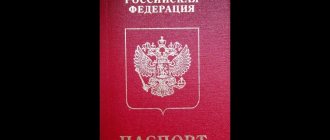Criminal Code of the Russian Federation in the latest edition:
Article 120 of the Criminal Code of the Russian Federation. Forcing the removal of human organs or tissues for transplantation
1. Coercion to remove human organs or tissues for transplantation, committed with the use of violence or with the threat of its use, -
shall be punishable by imprisonment for a term of up to four years with or without deprivation of the right to hold certain positions or engage in certain activities for a term of up to three years.
2. The same act committed against a person who is known to the perpetrator to be in a helpless state or in financial or other dependence on the perpetrator, -
shall be punishable by imprisonment for a term of up to five years with or without deprivation of the right to hold certain positions or engage in certain activities for a term of up to three years.
Return to the table of contents of the document: Criminal Code of the Russian Federation in the latest edition
Comments on Article 120 of the Criminal Code of the Russian Federation
Object of crime . The specific object of the crime provided for in Article 120 of the Criminal Code of the Russian Federation is human life and health.
The immediate object of the crime is the ability to freely make decisions regarding the lifetime use of one’s organs and tissues.
Forcing to remove organs and tissues from a deceased person does not constitute a crime under Art. 120 of the Criminal Code of the Russian Federation, since it does not infringe on human health.
The subject of the crime is the lung, kidney, liver, bone marrow and other organs and (or) tissues.
The victims of this crime are a living person whose organs or tissues are being violated, as well as his relatives, medical workers and other persons on whom consent to organ and tissue transplantation depends.
The objective side of the crime is expressed in forcing the victim to remove his organs or tissues for transplantation, committed through violence or the threat of violence.
Coercion should be understood as influencing the victim to obtain his consent to the removal of organs or tissues from him for subsequent transplantation. Methods of coercion are specified in Part 1 of Article 120 of the Criminal Code of the Russian Federation:
- use of violence - physical impact on the victim, for example, beating, torture, beatings, causing minor or moderate harm to health, tying up, restricting freedom, etc.
- threat of violence - expressing the intention to use physical force on the victim in order to obtain his consent to donate his organs or tissues for transplantation. Other threats, for example, to damage or destroy the property of the victim or his relatives, to disclose defamatory information or other information that could cause significant harm, do not matter for the crime.
A threat, like violence, can be applied not only to a potential donor, but also to his relatives.
If the consent of the victim to the removal of organs or tissues from him is achieved in another way, for example, by bribery or persuasion, then the actions of the person who achieved the consent do not form part of this crime.
The corpus delicti is formal. The crime should be considered completed from the moment the coercion specified in the law begins, regardless of whether the perpetrator, through violence or threats of violence, obtained the consent of the victim to remove his organs or tissues and whether they were removed. If in fact organs or tissues were removed, then the actions of the perpetrator are subject to qualification depending on the consequences of the totality of crimes. For example, causing grievous harm to the health of the victim, if consent to the removal of an organ or tissue was obtained under duress, is subject to qualification under Art. 120 and paragraph “g”, part 2, art. 111 of the Criminal Code of the Russian Federation.
The subjective side presupposes direct intent when the perpetrator realizes that he is forcibly forcing the victim to consent to the removal of organs and tissues from him or a third party, and wants to commit these actions.
The subjective side also includes awareness of the purpose of removing organs or tissues - their transplantation.
The motive of the crime is the desire to obtain transplant material for implantation, both in order to preserve life or health, and for other purposes (for example, for plastic surgery).
Other goals and motives (cannibalism, hooliganism, selfish, religious, pharmaceutical, scientific experiment, etc.) exclude qualification under this article.
The subject of the crime is a sane individual who has reached the age of 16. It can be either the potential recipient himself or another person acting in his or her own interests.
Methods of coercion
No one, being in a sober mind, will allow fragments of his body to be given away if this causes irreparable damage to health, therefore coercion is aimed at overcoming the psychological protective barrier of the instinct of self-preservation, forcing the victim to do this contrary to his own interests of preserving life and health .
Obviously, such an impact must be rough . All methods of coercion can be grouped into two types:
- Physical violence.
- Psychological violence, which consists of the threat of physical violence.
The Criminal Code contains many offenses involving the use of physical violence, so for qualification it is important to correctly determine the severity of the damage inflicted in order to understand whether the offender needs to be charged with other articles. According to the logic of the law, physical violence under Article 120 of the Criminal Code of the Russian Federation includes:
- simple torture ;
- beatings;
- causing harm to health of mild or moderate severity;
- illegal imprisonment.
If the direct physical impact on the offender’s body was broader, then the crime should be classified according to the totality of crimes .
Psychological violence is carried out through the threat of harm to health or murder . The method of informing the victim does not matter; it can be anything, including with the help of third parties. The main thing is that the victim recognizes the threat as real . The possible time of implementation of the criminal intentions expressed in the threat also does not play a role.
The question remains controversial as to how to qualify coercion to donate under the threat of physical harm not against the donor himself, but against his relatives or family members.
The Criminal Code does not give a clear answer to this question.
Some scientists believe that it is necessary to expand the article accordingly, since such threats are of a violent nature, because they suppress the will of a person . Others do not agree with them, they say that such threats are blackmail and are not violence, just like deception.
In practice, the courts do not consider that such a threat constitutes an offense under Article 120 . Let's hope that in the future the legislator will improve this rule or give more precise instructions regarding issues of its application.
Qualified elements of coercion to remove human organs or tissues
Part 2 of Article 120 of the Criminal Code of the Russian Federation provides for a qualified corpus delicti of this crime - in relation to a person who is known to the perpetrator to be in a helpless state or in financial or other dependence on the perpetrator.
Helpless state of the victim
Helplessness is the inability of the victim to defend himself due to a physical or mental condition.
A minor is actually classified by law among other persons who are known to the perpetrator to be in a helpless state. A minor is a person under 14 years of age.
A person in a state of sleep must be recognized as knowingly for the guilty person to be in a helpless state, since the guilty person, when committing a crime, realizes that the victim in a state of sleep can neither defend himself nor provide any resistance.
The state of intoxication may be recognized as a helpless state of the victim if it deprived the victim of the opportunity to resist the perpetrator or evade an attack on his life. For example, the victim was unable to move independently, get up from the ground, etc.
The helpless state of the victim is also revealed in paragraph 7 of the Resolution of the Plenum of the Supreme Court of the Russian Federation of January 27, 1999 No. 1 “On judicial practice in cases of murder (Article 105 of the Criminal Code of the Russian Federation)”, according to which a helpless person is characterized by inability due to physical or mental state to defend oneself, to actively resist the perpetrator. Judicial practice includes such persons as seriously ill people, the elderly, young children, and people suffering from mental disorders that deprive them of the ability to correctly perceive what is happening. The term “awareness” used by the legislator indicates the awareness by the perpetrator that the victim is in such a state.
Financial and other dependence of the victim
The financial dependence of the victim presupposes his being fully or partially dependent on the guilty person, and other dependence of the victim on the guilty person can be based on kinship, marriage, family relationships, on the law, on a contract, for example, the dependence of children on parents, guardians on guardians, an employee on boss, debtor from creditor, etc.
Consequences
What is the liability for coercing the removal of human organs or tissues for transplantation?
Analyzing the sanction of the norm, we come to the conclusion that coercion to donate is a crime of moderate gravity . In a simple form, the maximum sentence , expressed in imprisonment , is 4 years, and with a qualified composition - 5 years.
Since the commission of a crime requires special knowledge and skills in the field of medicine, the legislator provided an additional punishment - deprivation of the right to occupy certain positions or practice certain activities. The maximum statutory period for such restrictions is three years .
How is compensation for damage caused during transplantation of human organs and tissues?
Compensation for harm occurs mostly within the framework of civil law . This is evidenced by the Transplantation Law, which states that a medical organization that has performed an organ transplantation operation with violations shall compensate for the damage caused in accordance with the law.
In criminal law, compensation is expressed as follows:
- The court may award compensation for moral damages to the victim.
The court may deprive the guilty person of the right to engage in certain activities and hold a specific position, which together allowed him to do what he intended. This stops the threat of relapse .- The court imposes a penalty in accordance with the sanction of the article. By punishing the criminal , he restores social justice.
How to protect yourself
This issue is complex, since persons who commit illegal organ harvesting practice various schemes.
Those who belong to socially vulnerable segments of the population are primarily at risk. For your safety you must:
- carefully study the documentation that is signed in medical institutions;
- be interested in treatment methods, especially in situations where there are suspicions;
- Travel around the world with caution.
Court decisions
It is almost impossible to find judges’ decisions made under Article 120 of the Criminal Code, which is due to the underdevelopment of the black transplant market in Russia.
The reasons on which it is based that people do not commit the crimes in question on the territory of the Russian Federation are that:
- such a branch of medicine as transplantology developed at the end of the USSR, which suggests that there are few specialists involved in this area;
- Transplant specialists receive decent salaries, and therefore there is no point in taking risks;
- in order to perform an organ transplant operation, it is necessary to assemble a team of doctors and have special equipment, which is very problematic;
- organs can only be stored under special conditions;
- It is quite difficult to persuade people to donate.
From the above, we can conclude that committing an act is quite problematic, and this is due to its non-proliferation. However, the presence of appropriate standards in the Criminal Code is required, since outside of Russia the practice of black transplantology is very extensive.
Article 120. Calculation of the duration of annual paid leave
Determination of the Supreme Court of the Russian Federation dated July 13, 2005 N 58-G05-15 The court’s conclusion on the equivalence of 21, 14 and 7 working days of additional paid leave established by the Law of the Territory, and 24, 16 and 8 calendar days established by the Law of the Russian Federation, contradicts the provisions of Art. . 120 of the Labor Code of the Russian Federation, which establishes that the duration of annual leave, both basic and additional, is calculated in calendar days and not in working days.
Determination of the Supreme Court of the Russian Federation dated July 13, 2005 N 58-G05-16
The court's conclusion about the equivalence of 7 working days of additional paid leave established by the Law of the Territory to 8 calendar days established by the Law of the Russian Federation contradicts the provisions of Art. 120 of the Labor Code of the Russian Federation, which establishes that the duration of annual leave, both basic and additional, is calculated in calendar days and not in working days.
Determination of the Supreme Court of the Russian Federation dated January 14, 2004 N 38-G03-12
The prosecutor appealed to the court with the above-mentioned demands, including asking that Art. 26 of the Law of the Tula Region of December 29, 1994 N 7-ZTO “On the status of a deputy of the Tula Regional Duma” as amended on July 10, 2002, according to which a deputy of the regional Duma working on a professional permanent basis is granted annual paid leave of 36 working days days with payment of treatment benefits in the amount of double monthly remuneration. Argues that this norm contradicts Art. Art. 115 and 120 of the Labor Code of the Russian Federation, establishing that annual paid leave is provided to employees for a duration of 28 days and is calculated only in calendar days.
Determination of the Constitutional Court of the Russian Federation dated October 21, 2008 N 949-О-О
As follows from the materials submitted by the applicant to the Constitutional Court of the Russian Federation, Article 120 of the Labor Code of the Russian Federation was not applied in her case. Consequently, in this part this complaint cannot be considered admissible. 2.2. Article 117 of the Labor Code of the Russian Federation establishes the general rules for providing annual additional paid leave to employees engaged in work with harmful and (or) dangerous working conditions. It is aimed at providing citizens working in these conditions with social guarantees and cannot in itself be considered as violating the constitutional rights and freedoms of citizens.
Determination of the Supreme Court of the Russian Federation dated October 29, 2009 N 19-В09-19
In making a decision in the case, the court of first instance indicated that in violation of Articles 117, 120, 127 of the Labor Code of the Russian Federation, as well as without taking into account the provisions of the List of industries, workshops, professions and positions with hazardous conditions, approved by Resolution of the State Committee of Labor of the USSR and the Presidium of the All-Union Central Council of Trade Unions N 298 /P-22 dated October 25, 1974, the plaintiff was not provided with 14 days of additional leave, and therefore she has the right to receive monetary compensation for unused additional leave.
Determination of the Supreme Court of the Russian Federation dated October 4, 2013 N 69-KG13-4
Article 120 of the Labor Code of the Russian Federation stipulates that the duration of annual basic and additional paid leaves of employees is calculated in calendar days and is not limited to a maximum limit. Non-working holidays falling during the period of annual main or annual additional paid leave are not included in the number of calendar days of leave.
Determination of the Judicial Collegium for Civil Cases of the Supreme Court of the Russian Federation dated May 25, 2015 N 5-КГ14-161
Taking into account the provisions of the List of October 25, 1974, providing for the provision of additional leave to doctors of healthcare institutions in the amount of 12 working days, as well as the provisions of Articles 122 and 120 of the Labor Code of the Russian Federation, according to which paid leave must be provided to the employee annually and when calculating the total duration of annual paid leave, additional paid vacations are summed up with the annual basic paid vacation, the appellate court recognized the defendant’s actions in ignoring the rights of F.R. Sokolova. for additional leave in the period from 2001 to 2013 were illegal and ordered him to pay the plaintiff compensation for unrealized days of additional leave during the period of her work at the Federal State Budgetary Institution “Polyclinic N...”.
Decision of the Supreme Court of the Russian Federation dated November 18, 2003 N GKPI03-1049
Dukhovny A.L. filed the above statement, believing that his labor rights were violated by this regulatory legal act, which contradicts Art. Art. 114, 120, 132, paragraph 4 of Art. 139 of the Labor Code of the Russian Federation. At the court hearing, the applicant's representative Fatkiev B.Kh. supported the applicant’s demands, clarifying them that what is really being challenged is the fourth paragraph of the Regulations on the specifics of calculating average earnings, and not the Decree of the Government of the Russian Federation that approved it.
Decision of the Supreme Court of the Russian Federation dated November 17, 2004 N GKPI04-1335
As the applicant points out, the contested provisions of the regulatory legal act contradict Part 2 of Article 120 of the Labor Code of the Russian Federation, because limit the right of citizens to receive additional leave without limiting the maximum limit, in particular, in his profession as an underground operator of an underground self-propelled machine, the duration of such leave is limited to 14 calendar days.
Determination of the Supreme Court of the Russian Federation dated 01.02.2005 N KAS04-667
Indeed, as the applicant claims, according to Part 1 (the court decision erroneously indicated Part 2) of Article 120 of the Labor Code of the Russian Federation, the duration of annual basic and additional paid leaves of employees is calculated in calendar days and is not limited to a maximum limit. However, this provision of the law cannot be applied in isolation from another norm of the Labor Code of the Russian Federation - Part 2 of Art. 117, according to which the lists of industries, works, professions and positions in which work gives the right to additional paid leave for work under harmful and (or) dangerous working conditions, as well as the minimum duration of this leave and the conditions for its provision are approved by the Government of the Russian Federation, taking into account opinions of the Russian Tripartite Commission for the Regulation of Social and Labor Relations.
Decision of the Supreme Court of the Russian Federation dated July 13, 2006 N GKPI06-637
V. believes that the contested order of the Regulations violates his labor rights and contradicts Articles 114, 120, 132 and Part 4 of Article 139 of the Labor Code of the Russian Federation. The applicant asked to consider the case in his absence, and was duly notified of the time and place of the court hearing.
Medical experiences
Often, in order to introduce a new drug, it is necessary to test it.
In this case, experiments should take place in relation to a person. The state protects human rights, and therefore it is prohibited to conduct experiments on people without obtaining consent from them or their legal representatives. The Criminal Code does not have a separate article regarding illegal experiments.
On the territory of Russia there are legislative acts adopted at the federal and international levels that regulate the conduct of experiments on people. In particular, such a law is “Fundamentals of the legislation of the Russian Federation on the protection of the health of citizens.”
This act provides for the procedure according to which new methods of treatment, prevention, as well as new medicines and drugs should be applied.
Important! The main principle of testing drugs on people is their consent and the usefulness of the experiment for the person.




